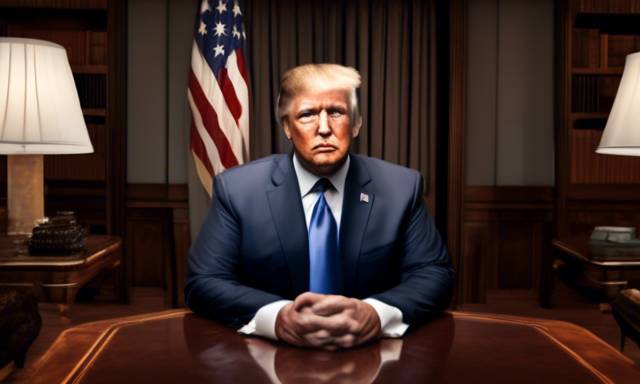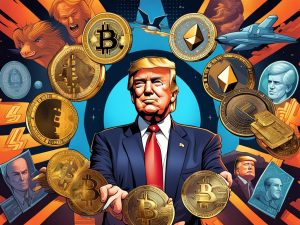Shifting Political Betting Landscape: Trump vs. Harris in the Spotlight ⚖️
This week, the political betting landscape has seen a significant rise in Donald Trump’s chances against Kamala Harris on Polymarket. This notable shift in odds has stirred discussions regarding the influence of large wagers on prediction markets just ahead of the upcoming U.S. presidential election.
Trump’s Strong Lead Raises Questions 📊
Currently, Trump is favored over Harris in Polymarket’s “Presidential Election Winner 2024” betting pool, garnering 62.1% of the bets compared to Harris’s 37.9%. This dramatic change has drawn attention due to the timing, coinciding with a substantial placing made by one participant.
A bettor, identified as Fredi9999, reportedly placed an extraordinary bet amounting to $20 million on Trump, potentially skewing the perceived odds in his favor. This raises concerns regarding the accuracy and reliability of Polymarket’s predictions, as other data sources indicate a tighter race. For instance, recent national surveys show Harris leading Trump by 48.5% to 46.2%. The implications of these discrepancies highlight increasing uncertainty as the election day approaches.
Critics of political prediction markets, including several lawmakers, have raised alarms about such platforms. They argue that betting could lead to a manipulation of outcomes, influencing voters and undermining democratic integrity.
Concerns Over Market Integrity 🎲
As the 2024 election nears, the debate surrounding the credibility of political prediction markets escalates. Elon Musk, a prominent billionaire, controversially claimed that platforms like Polymarket provide more accurate forecasts than traditional polls because of the monetary stakes involved. Nevertheless, such assertions face opposition from skeptics who argue that hefty wagers can distort market signals.
Numerous federal lawmakers have signed letters urging caution regarding these betting platforms, expressing the belief that substantial financial investments could disrupt the democratic process. In a recent letter, Senators Elizabeth Warren, Richard Blumenthal, and Jeff Merkley indicated that election-related gambling erodes the principles of democracy, turning voter motivations from ideological beliefs towards profit-driven decisions.
Are Trump’s Odds in Prediction Markets Vulnerable to Manipulation? 🔍
The political betting atmosphere is further complicated by a recent legal victory for Kalshi, a competitor to Polymarket, which recently won the right to offer wagers on political events. However, a federal appeals court is reviewing that ruling, which adds another layer of uncertainty to how such markets will operate. Kalshi has already seen significant betting activity, with over $12 million in wagers centered around the Harris-Trump race.
On Kalshi, Trump also enjoys a favorable position over Harris, leading 57% to 43%. Yet, experts remain wary of the market’s potential to misrepresent public sentiment. Brandon Carl, Head of AI and Strategy at Smarsh Inc., warns that betting markets can encourage “herd behavior,” wherein bettors are swayed by trends rather than genuine odds or public opinion.
Carl cautioned that while many may view these betting markets as accurate reflections of reality, they can be easily manipulated, especially given the large sums involved. He expressed concern that significant bets could sway not only the outcomes of elections but also stock market movements, reiterating the intricate relationship between financial wagers and broader economic indicators.
Hot Take: Navigating the Future of Political Prediction Markets 🌐
As the U.S. heads toward a pivotal election, the questions surrounding the integrity of prediction markets like Polymarket and Kalshi become increasingly pressing. The influence of major bets on these platforms could substantially alter perceptions of the candidates’ viability, thus affecting voter behavior in unpredictable ways. In essence, the melding of finance and politics heralds a new era of electoral dynamics, one that requires careful scrutiny as it unfolds.
The coming months will be crucial as participants in the betting markets remain vigilant regarding the significant implications of their activities on public elections and the overall democratic process.





 By
By
 By
By

 By
By
 By
By